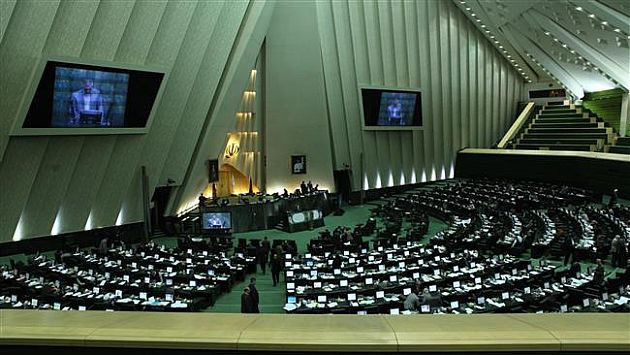Cautiously Approving: Reformist MP describes Iranian parliament’s take on Trump’s negotiation offer

One week after Trump’s offer of negotiations with Tehran with no preconditions, the Iranian political sphere is still debating whether the government should engage in talks with the erratic president of the United States. Officials in the administration, the Revolutionary Guards, and the parliament have spoken for and against the issue. Mahmoud Sadeghi, vocal Reformist MP from Tehran, has also given his take on the critical question of negotiating with the US after its withdrawal from the JCPOA:
After Trump’s remarks about negotiations with Iran with no preconditions, in Twitter, you said that many parliament lawyers are not against talks with Washington if it follows the three tenets of Iran’s foreign policy, that is, dignity, wisdom, expediency. Is this still the mood in the parliament?
United States has violated its commitments and acted against the international law by withdrawing from the JCPOA. Undoing that decision is Iran’s main demand. Therefore, Iran should sue the US government through legal channels in order to sustain the JCPOA. But about negotiations with Washington, debate is still going on in the parliament. The basic concern is how to proceed with likely negotiations without hurting the national dignity.
So you believe the US should rejoin the JCPOA before any negotiations with Washington starts?
It is up to our diplomatic apparatus to think about this. But legally speaking, governments, and political regimes, are bound to commitments made by their predecessors. The Islamic Republic of Iran still takes on commitments made by the Pahlavi Dynasty, such as the UN Charter and the 1975 Algiers Agreement [with Iraq]. It is based on this legal principle and the 1955 Treaty of Amity between Tehran and Washington that Iran has recently filed a lawsuit against the US in the International Court of Justice.
There is one legitimate question: if Trump has revoked a previous agreement made by the US administration: how could we guarantee that any agreement with Trump is not revoked by the next US administration? So, we need a negotiations partner which is reliable and will stand by its commitments. Negotiating with the US is not a taboo in itself. Iran has directly talked to the US over regional issues and the nuclear program.
But knowing about Trump’s character, it is unlikely that the US agrees to return to the JCPOA before starting any negotiations.
This is something for the key decision-makers of the establishment to think about, in places such as the parliament, the National Security Committee of the parliament, the Expediency Council, and the Supreme Council of National Security. I think it is not in our best interest to reject the proposal for negotiations. I insist on observation of the three tenets of foreign policy determined by Supreme Leader [Ayatollah Khamenei], dignity, wisdom, and expediency. Expediency means policy flexibility, just as we saw in the JCPOA and the ‘heroic flexibility’ that Ayatollah Khamenei defined. We should turn this situation into a platform for dialogue between political parties, not infighting, inside Iran. I have been talking to Principlist lawyers in the parliament and some their moderate figures are of the same idea.
The Iranian street seems to welcome the idea of negotiations and the Rial to USD exchange rate dropped after Trump’s suggestion of unconditional talks.
I don’t think we should tie our economy to Trump’s words and actions. Our economic woes have internal roots. Attributing economic ups and downs to such comments are problematic. Even if we establish relations with Washington, our deep-rooted economic challenges will not be solved easily.
What is the dominant mood in the parliament regarding negotiations with the US?
Lawyers are more concerned about economic woes at the moment. But I think we need a transformation in the Islamic Republic of Iran’s foreign policy to end some stalemates. I have asked Mr. Aref [head of the Reformist bloc in the parliament] to invite other blocks in the parliament to discuss the issue and see if we should enter a new era in our diplomacy. Some key Principlist members in the presiding board of the parliament and they have welcomed the idea. But this needs some courage and sacrifice.
* This piece was originally published in the moderate website Fararu.

